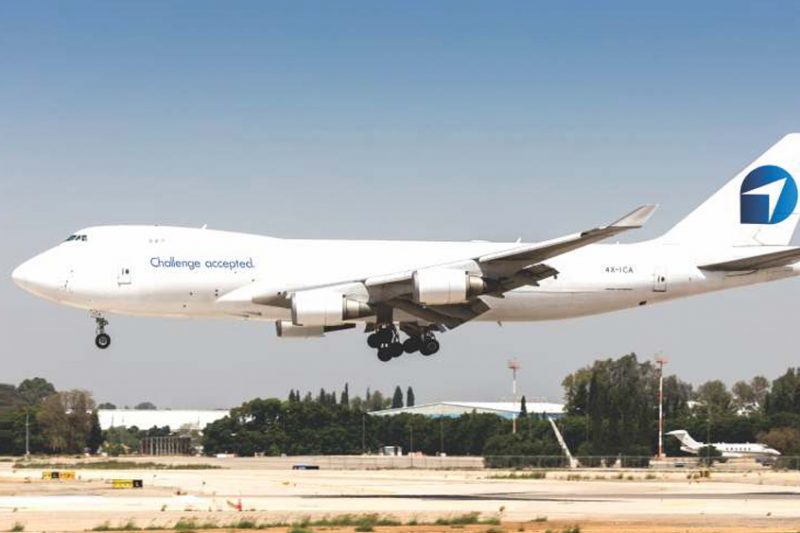Q&A with Yossi Shoukroun CEO of Challenge Group
Continuing to walk through a difficult time in history amid the pandemic and the ongoing war between Ukraine and Russia that could escalate to greater conflicts in Europe and result to wider global economic and security problems if not stopped, the air cargo industry remains resolute on its mission to facilitate global trade, medical and humanitarian efforts.
In this Q&A with Air Cargo Update, Yossi Shoukroun, the CEO of Challenge Group who is highly regarded for his leadership roles and overcoming challenges, shares his thoughts on the issue and the company’s quest for global expansion to meet the world’s growing demand for air cargo services.
The Malta-based Challenge Group is an international conglomeration which operates three airlines as well as offer bespoke solutions on air and ground handling logistics and other aviation services.
Please tell us more about Challenge Group, the companies under its wings, and the services that they provide.
Challenge Group manages under its umbrella three airlines (CAL Cargo Airlines in Israel, Challenge Airlines in Belgium, and Challenge Air Cargo in Malta), a ground handling company (Challenge Handling in Liege, Belgium), a European road feeder provider (Challenge Logistics in Liege, Belgium), an aircraft and parts leasing division (Challenge Aviation), and a comprehensive line maintenance provider (Challenge Technic).
How was your business during the pandemic and this post-pandemic era?
We have experienced two exceptional years in terms of overall performance, fleet utilization, destinations reached, customers served and tonnage transported. There was a real challenge in maintaining the supply chain operational. So, we conducted a revision of our BCP, focusing on digitized processes to rely less on manual interaction.
Currently, we are seeing strong request for capacity and ancillary service but also a high demand for specific destinations and commodities due to the geopolitical situation and ports congestion.
How has the pandemic situation affected markets worldwide?
Pre-pandemic belly capacity still needs time to recover and shipping line adopted a new business model based on regional feeder service instead of roundtrips around the globe. For this reason and for the covid restrictions still in place, seaports are congested causing major delays in delivering goods, therefore, the logistic industry should adopt a multimodal supply chain approach to business to meet the demand of global trade. For instance, some countries are reconsidering their offshoring production strategy to internalize the production of specific goods or having enough internal stock of specific items.
How has the conflict between Russia and Ukraine affected the cargo industry?
As expected, the conflict has led to a severe shortage of capacity due to the sanctions and restrictions imposed on some operators. There are of course longer alternative routes to connect the EU and the Far East, but they involve an additional cost as the flight time is longer (so is the fuel consumption), there is less rotation and less payload.
What’s the worst-case scenario if the situation (war) drags on?
The worst-case scenario would be the extension of the conflict to other areas of the world which would put further pressure on the supply chain. We hope that this issue will come to a conclusion shortly.
In your expert opinion, how can the air cargo industry and its supply-chain cushion the impact of the global economic crisis or prolonged regional conflicts for that matter.
Air cargo is essential. We are deeply convinced that the airfreight business will continue to play a key role in supporting world trade, and the more extreme the situation becomes, the more the world economy understands its value.
We understand that you’re diversifying into a boutique air cargo company, please tell us more about this.
Indeed, our goal is to offer special products that meet high standards and unique tailor-made services. Our ambition is to become the first choice of customers by offering a wide range of tailormade products and ancillary services.
What specific services are you targeting to offer?
We want to answer to the needs of the market and customers. To be able to adapt to every demand, we have developed expertise over our years of activity and our product lifecycle is constantly reviewed to grant the best possible standard for specific verticals on specific trade lanes.
Why choose air cargo industry at this time?
Air cargo will stay when it comes to urgency. Indeed, it is an essential mode of transportation and there will always be a need for specific high value items, goods with limited life shelf, for emergencies. So, airfreight will remain indispensable.
What can companies expect from Challenge Group in the foreseeable future?
Our plan is not only to increase our capacity by three times adding respectively four B76F and 4 B77F aircraft to our current fleet, but to expand globally, by replicating the success story of our Liege hub in other continents, while offering a different approach to the industry by owning the full supply process. Our core concept is the shared economy, which connects industry partners willing to grow mileage with us.
Looking for innovative solutions and partners we are also developing our own inhouse application to keep the flexibility and ownership of our digital journey in an efficient way, ensuring fast development and tailor-made tools.


